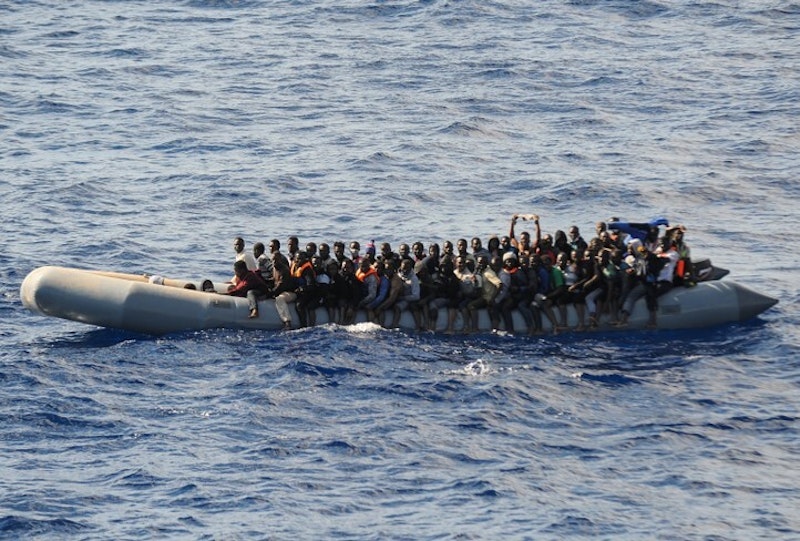Study Notes
GCSE Geography | Impacts of the Development Gap: Migration (Development Gap 11)
- Level:
- GCSE
- Board:
- AQA, Edexcel, OCR, Eduqas
Last updated 6 Jan 2025
One consequence of uneven development is international migration. This might be in the form of economic migration, as people to move to other countries for economic opportunities, or it maybe when people flee to safety as refugees.
There are several key terms that are important to understand when looking at migration...
- Migration - the movement of people from one place to another
- Immigrant - a person who moves into a country
- Emigrant - a person who moves out of a country
- Economic migrant - a person who moves voluntarily to seek a better life, such as a better paid job
- Displaced person - a person who is forced to move from their home but who stays in their country of origin
- Refugee - a person forced to move from their country, often as a result of civil war or natural disaster
Different waves of migration have happened in the UK in the past. The British Nationality Act 1948 gave people living in British colonies citizen status and the right to move to the UK to live. The government encouraged people from the Caribbean to come to the UK to live and work, to fill labour shortages after WWII. Between 1948 and 1970 nearly half a million people made this journey, becoming known as the ‘Windrush generation’ - many of these people were leaving developing nations to seek a better quality of life in the UK.
However, in 2012 the ‘hostile environment’ migration policy was introduced in the UK, making it difficult for people to stay in the UK without ‘leave to remain’ and making new migrants less welcome. As the Windrush generation hadn’t been given official paperwork to say they were British citizens, many found themselves being treated as illegal immigrants and facing possible deportation.
Migration levels have increased over the last two decades as people in LICs have become more aware of the development gap, and how their lives compare to other peoples' across the globe. This has happened as a result of globalisation with mobile phone usage increasing rapidly across Africa, meaning that even those living in poverty can share information and can learn about other places that may offer them a better quality of life.
Figures for international migration reached a peak in 2015 - with 14 million people being forced out of their homes because of poverty or conflict, in regions such as northern Africa and the Middle East. Over 1 million refugees from Syria, Afghanistan and Iraq crossed the Mediterranean Sea between January 2015 and March 2016. All three of these countries have suffered conflict which has affected their level of development. The journey across the Mediterranean Sea is dangerous, with migrants in overladen unsafe boats, and in April 2015 an estimated 1,200 refugees died when their boats sank whilst attempting this journey, with many more losing their lives since.

Refugees can also be taken in by neighbouring countries when drought leads to famine and local people have no food supplies, or when natural hazards, such as earthquakes occur, and people need to be temporarily housed in neighbouring countries whilst reconstruction takes place.
Economic migrants are not living in desperate situations like refugees, who have often faced many months in temporary camps with no prospect of a better life. Economic migrants are often highly skilled and choose to move to HICs where they will receive higher wages, for example, doctors from India. When skilled migrants move to another country this results in a 'brain drain' - where highly skilled workers are lost, which could have an impact on the development of the country they have left. However, economic migrants often send remittances (money) back to their home countries.
You might also like

Chocolate mmm!!!!
26th February 2015

Desertification - The People whose Land is turning to Dust
15th November 2015

Two Billion Miles
18th November 2015
Climate change to trigger increased asylum seekers in Europe
27th December 2017
Oxfam's scandal could affect all global aid.
14th February 2018

Refugee stories behind the statistics and a UK policy shift
29th June 2021
Daily Email Updates
Subscribe to our daily digest and get the day’s content delivered fresh to your inbox every morning at 7am.
Signup for emails